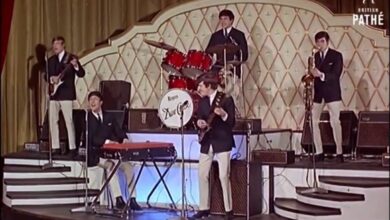The Doors were banned from The Ed Sullivan Show today after Jim Morrison broke a pre-show agreement
On this significant day in music and television history, The Doors, one of the most influential rock bands of the 1960s, faced a major controversy that led to their ban from The Ed Sullivan Show, a premier television variety show that was crucial for artists seeking national exposure in the United States. This incident is particularly noteworthy because it highlights the clash between the countercultural movements represented by bands like The Doors and the conservative norms of mainstream media during that era.
The controversy centered around Jim Morrison, the charismatic and often unpredictable lead singer of The Doors. Known for his poetic lyrics, distinctive voice, and wild stage presence, Morrison was also infamous for his rebellious attitude and disregard for authority, traits that endeared him to the youth but alarmed the establishment. Prior to their appearance on The Ed Sullivan Show, the band was asked by the show’s producers to alter the lyrics of their hit song “Light My Fire” due to its explicit references to drug use, specifically the line “Girl, we couldn’t get much higher.”

In a time when television was heavily censored and artists were expected to conform to strict broadcast standards, such a request was not unusual. However, Morrison, ever the iconoclast, agreed to the change in the pre-show discussions but ultimately chose to sing the original lyrics during the live performance. This act of defiance did not sit well with Ed Sullivan and the show’s producers, who felt that Morrison had deliberately misled them and violated the trust and agreement they had established.
The immediate aftermath of this incident was swift and decisive. The Doors were reportedly confronted by an infuriated Ed Sullivan backstage, who informed them that they would never be invited back to the show. The ban was a bold statement from the show’s producers, emphasizing their commitment to maintaining the program’s perceived wholesomeness and their unwillingness to tolerate what they viewed as disrespectful or inappropriate behavior from guests.
The ban from The Ed Sullivan Show did not significantly hinder The Doors’ career; in fact, it arguably enhanced their reputation within the burgeoning counterculture movement. It underscored the growing generational and cultural divides of the 1960s, with younger audiences increasingly drawn to figures who challenged the status quo. The incident also highlighted the tensions between artistic expression and the constraints of mainstream media, a theme that would continue to resonate in various forms throughout the history of rock music and popular culture.
In retrospect, the ban of The Doors from The Ed Sullivan Show serves as a fascinating case study of the complexities surrounding the intersection of entertainment, politics, and social change during a tumultuous period in American history. It reflects the challenges faced by artists who sought to push boundaries in a society that was grappling with rapid transformation and the redefinition of its values and norms.



